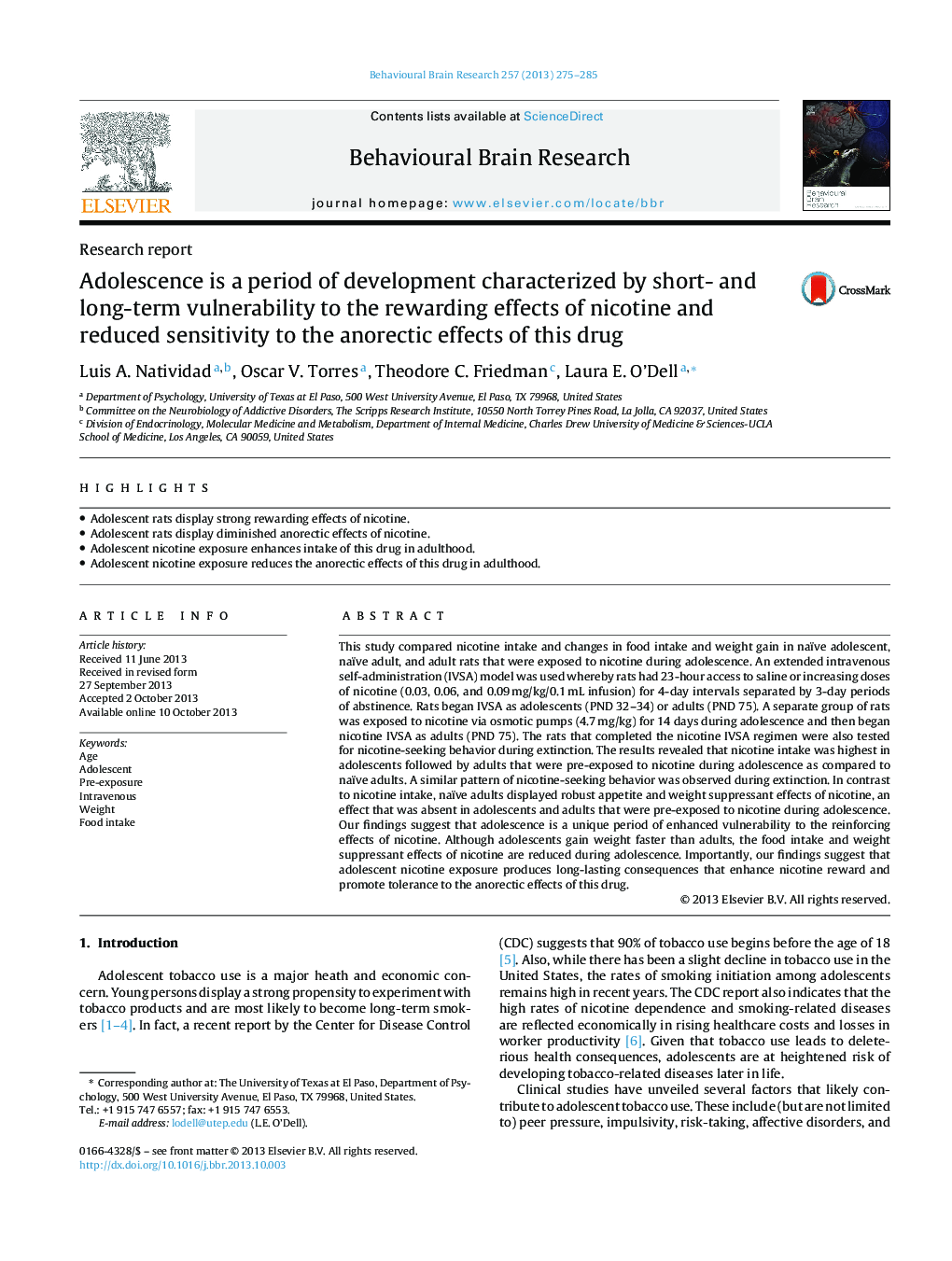| Article ID | Journal | Published Year | Pages | File Type |
|---|---|---|---|---|
| 6258535 | Behavioural Brain Research | 2013 | 11 Pages |
â¢Adolescent rats display strong rewarding effects of nicotine.â¢Adolescent rats display diminished anorectic effects of nicotine.â¢Adolescent nicotine exposure enhances intake of this drug in adulthood.â¢Adolescent nicotine exposure reduces the anorectic effects of this drug in adulthood.
This study compared nicotine intake and changes in food intake and weight gain in naïve adolescent, naïve adult, and adult rats that were exposed to nicotine during adolescence. An extended intravenous self-administration (IVSA) model was used whereby rats had 23-hour access to saline or increasing doses of nicotine (0.03, 0.06, and 0.09Â mg/kg/0.1Â mL infusion) for 4-day intervals separated by 3-day periods of abstinence. Rats began IVSA as adolescents (PND 32-34) or adults (PND 75). A separate group of rats was exposed to nicotine via osmotic pumps (4.7Â mg/kg) for 14 days during adolescence and then began nicotine IVSA as adults (PND 75). The rats that completed the nicotine IVSA regimen were also tested for nicotine-seeking behavior during extinction. The results revealed that nicotine intake was highest in adolescents followed by adults that were pre-exposed to nicotine during adolescence as compared to naïve adults. A similar pattern of nicotine-seeking behavior was observed during extinction. In contrast to nicotine intake, naïve adults displayed robust appetite and weight suppressant effects of nicotine, an effect that was absent in adolescents and adults that were pre-exposed to nicotine during adolescence. Our findings suggest that adolescence is a unique period of enhanced vulnerability to the reinforcing effects of nicotine. Although adolescents gain weight faster than adults, the food intake and weight suppressant effects of nicotine are reduced during adolescence. Importantly, our findings suggest that adolescent nicotine exposure produces long-lasting consequences that enhance nicotine reward and promote tolerance to the anorectic effects of this drug.
